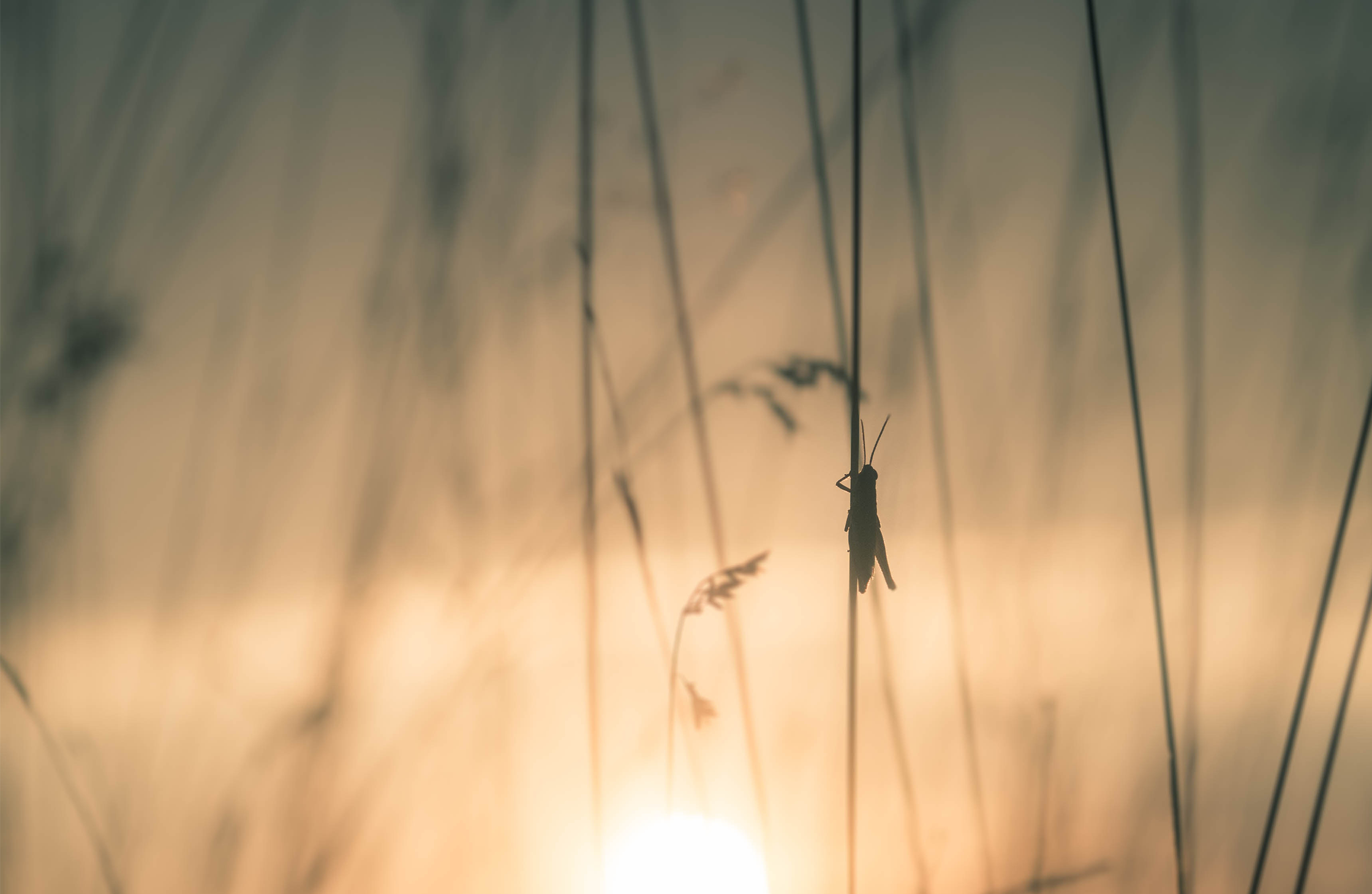Photo by Tom Morel 0n Unsplash
When I was six — almost seven — I used to play with a little boy down the street named Randy. We used to ride Big Wheels together and play in his backyard or go down to the creek and look at tadpoles or frogs — whatever we could see.
One day, he showed me how to catch grasshoppers. If you threw one into a spiderweb, the spider would wrap them up and begin feeding on them. It was mesmerizing.
The first time Randy threw a grasshopper into a web, the cascade of events that flowed from this little action entertained me.
One afternoon, we threw grasshopper after grasshopper into webs until the spiders around his house were overfed.
A few days later, we did it again, but this time it bothered my little six-year-old brain. I had realized in the days since our first grasshopper catching that these tiny little arthropods were alive; we had just condemned them to be food for another living thing. I distinctly remember how this made me feel, imagining with horror what the grasshopper was experiencing as it was bound in webbing.
In the days that followed, Randy took me out into the fields that surrounded our subdivision. His father had shown him how to take a fiberglass bicycle flag and turn it into a spear by rubbing the tip down on the sidewalk until you had a needle-like point. He found mouse dens and would thrust his homemade fiberglass spear into the hole.
After the first two times he did this — each with their squeal of pain and lifeless field mouse impaled on his spear — I could take no more. I left the field and stopped playing with Randy forever. I never saw him again after that day.
More than the grasshoppers, I remembered how the field mouse hunt made me feel. Long before I knew I was gay, I started making connections in my brain that were at odds with what my family — my mother in particular — had taught me about ‘toughness’ and ‘being male’. The feelings in my heart were definitely at odds with how society at the time saw nature and the value of living beings outside of humans.
I knew that I loathed aspects of both the natural world and human nature. Nature is inherently cruel: survival of the fittest, the casual brutality of eat or be eaten. Humans, not far removed from our primeval past, possess that casual brutality within us, as well. I suspect it's why we still have war.
It may be natural for spiders to eat grasshoppers. But I could not stomach being the vector by which that tiny life was extinguished. It may be natural for most field mice to be killed by predators or tiny boys just ‘having fun’, but I could not withstand the infliction of pain just so that a little boy could have a few seconds of excitement.
At this time, my fundamental understanding of civilization and civilized behavior was forming. I came to understand the depth of my empathy — and also that many of the people around me had no empathy of any kind. Many of the people in the world around me looked like me and spoke like me, but they were nothing like me on the inside.
I began to see at a young age that empathy and compassion are the cornerstones of civilization and justice, two concepts that are absent within the natural world and its law of kill or be killed.
I respect nature for what it is, what it does, and what it provides to all living beings, including human civilization, but I recognize that it is without civilizing impulse and justice. All it possesses is balance. They are not the same.
I understand that some humans can kill, fight, or do any number of activities that require harm to be inflicted upon another living being. Some of us do it because circumstances require it (self defense, for example), and some of us do it because it is enjoyable. The former are no danger to society; the latter surely are.
But the difference between humans and the natural world of which we are a part is that we have a choice — which impulses do we feed and which do we control?
Why am I telling this story?
Because those who are gentle, empathetic, and nurturing — the protective exemplars — have never fully been embraced and elevated in the consciousness of our nation’s historically patriarchal culture (and countless others).
We continue the celebration of battle metaphors, toughness, manliness, masculinity, ‘fight and never back down’ — all of the things that are at odds with what most need: the civilizing impulse of empathy. (Hell, even in the world of education and training, we use the word ‘cohort’ which originally was from ancient Rome and was one of ten divisions within a Roman Legion. It's also why I never use that word in training circles.)
This elevation of competition, masculinity, battle, and struggle — the way they are upheld as being virtuous above all others — diminishes femininity, empathy, compassion, thoughtfulness, and, yes, even love.
It is not within me to kill for no reason — not even a grasshopper or a field mouse, let alone a human being. But it is also not within me to embrace the Machiavellian win-at-all-costs mentality that permeates every sphere of American life. My nature has made my choice on how to live an easy one to make (even though, perhaps paradoxically, I believe in ‘fighting’ injustice wherever it may be found).
For others, the choice of empathy, compassion, deliberation, discussion, and civilizing impulses of all kinds is harder. I get that.
But we must all embrace each other and work the civilizing impulse — even if you enjoy hunting grasshoppers for fun — so that we do not let the ties that bind us fray.
This lesson for me is political, but also spiritual. In 2024, we have a party that wants to embrace ‘might makes right’, which is no different than ‘eat or be eaten’. Justice, light, and civilization have no place in a society governed by this thinking.
This means many of us — like me and you — may also not have a place in a society that chooses to not merely embrace the patriarchy of old but build a newer, more hostile society of eat or be eaten.
We can all compete (and it can serve a limited purpose in parts of civilization). That's the law of nature. But why not cooperate when cooperation is more fun and enjoyable?
This is a time of peril. It requires that we embrace empathy and compassion, and recognize these qualities as true strength.
E Pluribus Unum.
“Submitted on behalf of and with permission of the author.”


